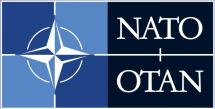Prague, May 25 - Scientists from the University of Chemistry and Technology, Prague (UCT Prague) have created an affordable device to assist security agencies in rapid and reliable detection of explosives and chemical warfare agents. Assoc. Prof. Martin Vrňata from the UCT Prague, Department of Physics and Measurements has led the NATO-supported project team (also including the Czech University of Defense; Yerevan State University, Armenia; and the Armenian National Bureau of Expertises) for the past two years.
 While highly sophisticated detection equipment already exists for chemical warfare agents and explosives, this equipment is often very expensive and only able to be used by specialized departments with skilled personel. "We are working to develop sensors for devices that will be accessible and affordable for police, firefighters, and other first response units," said Assoc. Prof. Vrňata.
While highly sophisticated detection equipment already exists for chemical warfare agents and explosives, this equipment is often very expensive and only able to be used by specialized departments with skilled personel. "We are working to develop sensors for devices that will be accessible and affordable for police, firefighters, and other first response units," said Assoc. Prof. Vrňata.
The sensors (chemiresistors) in these devices detect either volatile taggants in explosives or chemical warfare agents The interaction between sensitive layer of the chemiresistor and the detected substances results to change in electrical resistance or impedance of the device, which is easily measurable.
Legally manufactured explosives must contain higher vapor pressure identifiers - taggants which can be detected by our sensors. "Illegally manufactured explosives do not contain such taggants,but they are often produced in an amateur manner, so as a result, they also usually contain significant amount of compounds producing detectable gaseous substances," said M. Vrňata.
Development and testing of sensors is quite a complicated procedure. UCT Prague cannot directly handle warfare agents such as Sarin, Soman, or mustard gas, so sensors are first tested on so-called simulants that resemble warfare agents, but are not hazardous to humans. Sensors are then taken to the laboratory of the University of Defense in Vyškov, which has permission to work with real warfare agents. "Only then can we say we have a sensor which can be used in real conditions. To date, we have produced eight promising types of such sensors," said M. Vrňata.
Project team member Ing. David Tomeček has already been awarded several prizes, from the point of view of research applicability (first place ABB best diploma thesis award; second place - Crytur best diploma thesis award) and from point of view of scientific merit (EMRS 2016 Lille Young Scientist Award).
More information: Michal Janovský, Michal.Janovsky@vscht.cz, cell: +420 733 690 543

